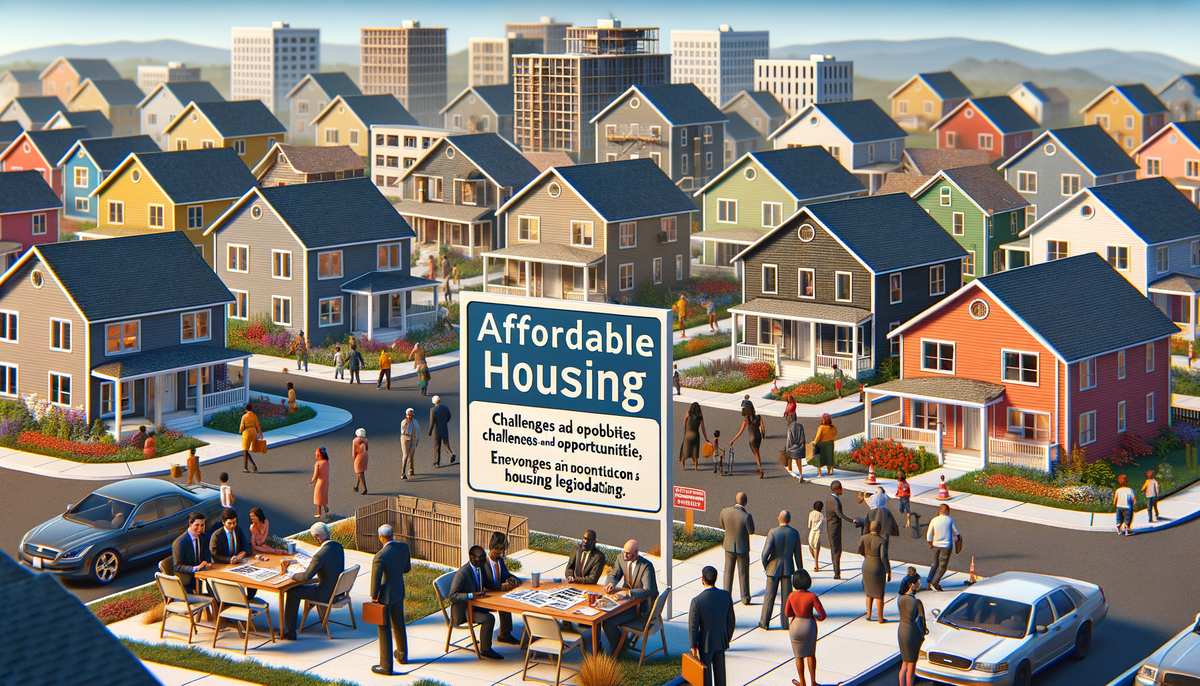Affordable Housing: Challenges, Trends, and Opportunities in 2025
Explore the challenges and opportunities in affordable housing and how it impacts us all. Discover practical insights and legislative movements aiming to improve housing equitability.

Affordable Housing: Challenges, Trends, and Opportunities in 2025
The topic of affordable housing has increasingly dominated discussions in both real estate circles and public policy debates in recent years. As urban centers continue to grow and the economic divide widens, finding long-term solutions to affordable housing becomes not just a necessity, but a moral imperative.
Understanding Affordable Housing
The concept of affordable housing is simple and universally understood: housing that doesn't overwhelm an individual's or family's budget, generally adherent to the standard that costs should not exceed 30% of gross income. Yet, achieving this balance is complex and varies globally. In the U.S., the Department of Housing and Urban Development (HUD) uses this 30% benchmark as a foundation for its policies (source: Roll Call).
Global Definitions and Approaches
Other countries have tailored their definitions of affordable housing according to local economic and social factors. For instance, in Australia, it is described as housing that is adequate and affordable without requiring households to sacrifice other basic needs. Similarly, the United Kingdom recognizes both socially rented and intermediate housing as necessary elements in areas where private markets fail to meet demand (source: The Hill).
Indicators and Tools
Several metrics are used to determine what qualifies as affordable housing:
- 30% Income Rule: A widely accepted measure where housing costs should not exceed 30% of gross income.
- Area Median Income (AMI): This metric often guides eligibility, although it can sometimes misrepresent the true affordability for individuals in specific locations.
- Median Multiple Indicator: A global perspective that looks at median house prices divided by median annual incomes, considering ratios of 3 or less as affordable.
Types of Affordable Housing
Affordable housing encompasses a range of housing models:
- Subsidized or Public Housing: Managed by the government, aiming to support low- to moderate-income families.
- Naturally Occurring Affordable Housing (NOAH): These are private market units affordable to low-income families without requiring explicit subsidies.
- Intermediate Programs: Designed for those earning too much for public assistance but struggling to afford private market prices.
Policy and Planning
Urban planners and policymakers are tasked with implementing strategies that not only provide affordable housing but also foster economic inclusion. The goal is to prevent individuals from falling into poverty or being forced to relocate due to rising housing costs. This is a crucial area of expertise for companies like ours, which specialize in developing sustainable, inclusive housing plans that benefit diverse communities.
Exciting Developments and Practical Takeaways
Recently, efforts have been made to boost homeownership through legislation aimed at benefiting first-time buyers, evidenced by new bills in the U.S. Congress (source: HousingWire). Such legislative movements not only create opportunities for individuals to build wealth but also stimulate broader economic growth.
For professionals in the affordable housing sector, staying informed about legislative developments, engaging in policy advocacy, and contributing to local housing initiatives are practical steps that reinforce their commitment to affordable housing solutions.
Conclusion and Call to Action
The quest for affordable housing is ongoing, with both challenges and opportunities on the horizon. As experts in the industry, we encourage policymakers, developers, and community leaders to innovate and collaborate in creating housing solutions that are inclusive and equitable.
Contact our team to explore how we can assist you in navigating the complex landscape of affordable housing solutions tailored to meet diverse community needs.




